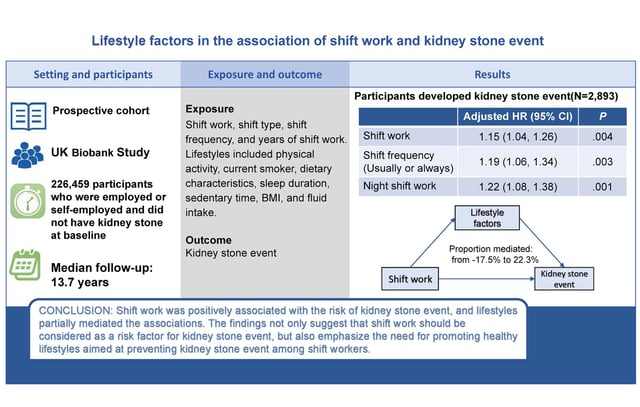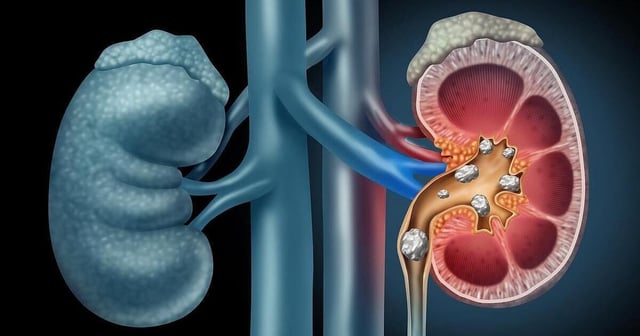Overview
- A Mayo Clinic Proceedings study of roughly 226,000 UK Biobank participants followed for a median 13.7–14 years found about a 15% higher risk of kidney stones among shift workers.
- Risk rose to 19% for people who usually or always worked nonstandard hours and to 22% for those on night shifts, with stronger associations in younger workers and those with mostly desk-based roles.
- Mediation analyses tied part of the association to modifiable behaviors including low fluid intake, unhealthy sleep duration, higher body mass index, smoking, and prolonged sedentary time.
- An accompanying editorial cites circadian rhythm disruption as a plausible mechanism affecting water balance and solute homeostasis, and it suggests exploring more flexible scheduling.
- Participants with longer histories of shift work showed a slight risk reduction, a pattern the authors say may reflect a healthy-worker effect or adaptation that warrants further study.

